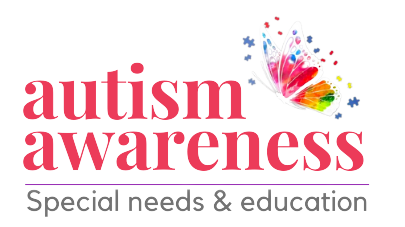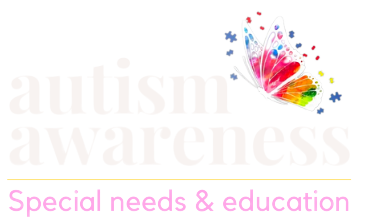Attention Deficit Hyperactivity Disorder (ADHD) may provide additional obstacles for pre-teens who are attempting to navigate the challenges of middle school. This can be a difficult road for any pre-teen individual. Attention-Deficit/Hyperactivity Disorder (ADHD) Preteens in Middle School can be empowered to thrive academically, socially, and emotionally during this crucial stage of development if they are provided with the appropriate techniques by their parents and teachers. This article examines five useful suggestions that can be used to support and improve the educational experience of ADHD pre-teens in middle school

In This Article
ToggleUnderstanding ADHD Pre-Teens in Middle School
The shift from elementary school to middle school is a critical one in a child’s life, and for children with attention-deficit/hyperactivity disorder (ADHD) who are in middle school, this time can provide a unique set of obstacles. There is a neurodevelopmental illness known as attention-deficit/hyperactivity disorder (ADHD) that impacts a person’s capacity to concentrate, control impulses, and regulate their energy levels. Given the hectic nature of middle school, these difficulties may become more pronounced, necessitating the development of individualized interventions to assure academic achievement and personal development for pre-teens with attention-deficit/hyperactivity disorder who are enrolled in middle school.

Individualized Learning Plans
Collaborate with teachers and school personnel to develop Individualized Learning Plans (ILPs) that are tailored to the needs of ADHD Pre-Teens in Middle School. To maximize the learning environment, ILPs may include changed assignments, extended test times, or preferential seating.
Structured Routine and Consistency
Creating a planned schedule at home and at school gives ADHD Pre-Teens in Middle School a sense of predictability that can help them in their daily life. Consistency in daily schedules, including defined study periods, breaks, and extracurricular activities, helps ADHD Pre-Teens in Middle School build a firm foundation for success.
Making Use of Assistive Technologies
Use assistive technologies to improve learning experiences for ADHD Pre-Teens in Middle School. Text-to-speech software, visual organizers, and digital planners can help with organization and comprehension, providing important assistance in academic work.
Positive Reinforcement and Goal Setting
Implement a positive reinforcement approach in Middle School to motivate and reward desired actions in ADHD Pre-Teens. Divide academic and behavioral goals into small chunks so that they can feel a feeling of success. For ADHD Pre-Teens in Middle School, celebrating accomplishments, no matter how minor, encourages a positive attitude toward learning.
Communicate Openly with School Personnel
To guarantee the success of ADHD Pre-Teens in Middle School, have open lines of contact with teachers, counselors, and other school professionals. Regular check-ins allow students to talk about their progress, address issues, and work on effective solutions for both academic and social areas of middle school life.
Navigating Social Challenges
Middle school is not only an academic setting but also a social one, and it can be especially difficult for pre-teens with attention-deficit/hyperactivity disorder to navigate the social dynamics of their peers during this stage of their education. The development of their social skills is essential to their overall well-being as well as their achievement in an educational environment.

Training on Social Skills
Enroll pre-teens with attention-deficit/hyperactivity disorder who are enrolled in middle school in social skills training programs that emphasize communication, cooperation, and dealing with conflict. These programs provide actionable tactics for handling social situations, developing friends, and cultivating meaningful relationships with others.
Fostering an Attitude of Mutual Understanding
Organizing classroom conversations regarding neurodiversity and attention-deficit/hyperactivity disorder (ADHD) can help foster a culture of empathy and understanding among peers. Middle school students who have attention-deficit/hyperactivity disorder should be encouraged to have open talks that promote acceptance, reduce stigma, and create a social atmosphere that is supportive.
Collaboration Between Home and School
Through the establishment of efficient communication channels, it is possible to guarantee that all parties involved are working together to achieve the common objective of empowering the kid.

Scheduling of Frequent Progress Meetings
Set up frequent progress meetings with teachers and other school staff members to discuss the academic and social growth of pre-teens with attention-deficit/hyperactivity disorder who are enrolled in middle school. During these meetings, participants have the opportunity to discuss their concerns, exchange their views, and develop their methods in order to better meet their ever-changing requirements.
Educating School Personnel
Offer teachers a variety of materials and information regarding attention-deficit/hyperactivity disorder (ADHD) in middle school students. In addition to providing them with appropriate teaching practices, workshops and training sessions can help them gain a better knowledge of the specific issues that these pre-teens confront.
Providing Emotional Support for ADHD Pre-Teens in Middle School
Emotional well-being is of the utmost importance for all pre-teens, but the development of emotional resilience is of utmost significance for pre-teens with attention-deficit/hyperactivity disorder who are in middle school. A more upbeat and conducive learning atmosphere can be created through the implementation of measures that place an emphasis on social and emotional support

Building a Supportive Network
It is important to cultivate a supportive network that includes teachers, school counselors, and other parents who are aware of the difficulties that ADHD Pre-Teens face when they are in middle school. The purpose of this network is to provide a valuable resource for the exchange of experiences, the solicitation of guidance, and the provision of emotional support.
Incorporating Mindfulness Practices
It is beneficial to incorporate mindfulness activities into the daily routine of pre-teens with attention-deficit/hyperactivity disorder who are in middle school. Deep breathing, guided meditation, and yoga are all examples of techniques that have the potential to be useful in lowering stress levels and enhancing concentration.
Key Takeaways
- Individualized Learning Plans (ILPs) should be crafted to meet the individual requirements of each student.
- Establishing consistent routines is essential for achieving stability both at home and at school.
- Enhanced learning experiences can be achieved through the utilization of assistive technologies.
- Strategies that involve positive reinforcement should be implemented in order to cultivate a positive mindset.
- It is important to keep an open line of contact with the school staff in order to provide collaborative support.
- Enroll in classes that teach social skills in order to improve your ability to interact with others.
- Build empathy among your contemporaries in order to lessen the impact of stigma and increase acceptance.
- Make sure to schedule regular meetings to discuss the progress being made and to monitor it together.
- In order to develop effective instructional methods, it is important to educate school workers about attention-deficit/hyperactivity disorder (ADHD).
- It is important to prioritize emotional support by practicing mindfulness and connecting with supportive networks.
Pic Credit for this article: Freepik

















Leave feedback about this